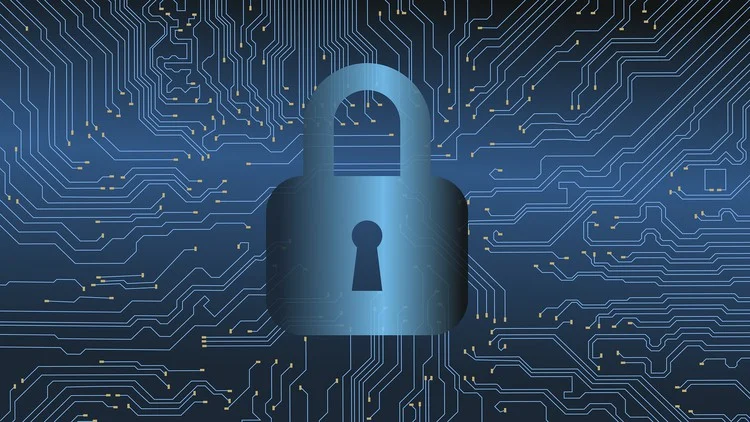Description
This course provides an introduction to cybersecurity principles, focusing on how to protect systems, networks, and data from cyber threats. You’ll learn about the fundamentals of encryption, firewalls, intrusion detection systems, and secure coding practices. The course covers common types of cyberattacks, such as phishing, malware, and ransomware, as well as strategies for preventing and mitigating these threats. You’ll also explore the ethical and legal aspects of cybersecurity, including privacy laws and regulations. Designed for beginners, this course equips you with the knowledge to safeguard sensitive information and take the first steps toward a career in cybersecurity.
What you'll learn
What You’ll Learn:
By the end of this course, you will have a solid understanding of the fundamental principles of cybersecurity and how to protect your personal and organizational data from cyber threats. You will gain the knowledge necessary to identify potential vulnerabilities, respond to common security incidents, and implement basic cybersecurity best practices to safeguard information systems. Key learning outcomes include:
- Cybersecurity Fundamentals:
- Understand what cybersecurity is and why it is crucial in today’s digital world.
- Learn about common types of cyber threats (e.g., malware, phishing, ransomware).
- Understand the concepts of confidentiality, integrity, and availability (CIA Triad).
- Familiarize yourself with the various components of a secure system (network security, application security, endpoint security, etc.).
- Cybersecurity Threats and Vulnerabilities:
- Learn about different types of cyber attacks, including social engineering, denial-of-service (DoS), man-in-the-middle attacks, and more.
- Understand how hackers exploit vulnerabilities in systems and applications.
- Explore real-world examples of cyber incidents and their impact on organizations and individuals.
- Cybersecurity Tools and Technologies:
- Discover the tools and technologies used to protect information systems (firewalls, antivirus software, encryption, etc.).
- Learn about network security technologies, such as VPNs, intrusion detection/prevention systems (IDS/IPS), and firewalls.
- Understand how data encryption and hashing protect sensitive information.
- Basic Network Security Concepts:
- Understand how networks work and the importance of securing network infrastructure.
- Learn about IP addressing, TCP/IP, and common network protocols (HTTP, HTTPS, FTP, etc.).
- Explore concepts like network segmentation, VLANs, and secure network architecture.
- Identity and Access Management (IAM):
- Learn the importance of managing user identities and access to systems and data.
- Explore authentication methods (passwords, biometrics, two-factor authentication).
- Understand the role of access control and privilege management in securing information.
- Incident Response and Recovery:
- Understand the importance of having an incident response plan in place.
- Learn the steps involved in responding to a cybersecurity incident (identification, containment, eradication, recovery).
- Understand how to develop a basic incident response plan for your organization.
- Learn how to assess and recover from a cyber attack or breach.
- Security Best Practices for Individuals and Businesses:
- Learn how to implement cybersecurity best practices at a personal and organizational level.
- Explore tips for securing personal devices (smartphones, laptops, etc.).
- Learn how businesses can protect sensitive data and comply with regulations such as GDPR and HIPAA.
- The Future of Cybersecurity:
- Understand emerging cybersecurity threats and trends, such as AI and machine learning in cybersecurity.
- Learn about the role of ethical hacking and penetration testing.
- Explore career opportunities in the cybersecurity field and how to further your knowledge.






Lawali –
“This ‘Introduction to Cybersecurity’ course was an exceptional learning experience. The instructor’s expertise shone through, providing a comprehensive foundation in cybersecurity principles and best practices. The interactive modules and hands-on exercises kept me engaged throughout, solidifying my understanding. By the end of the course, I felt confident in identifying and mitigating cybersecurity threats, empowering me to protect my online presence and valuable data.”
Bukola –
“I just finished the Introduction to Cybersecurity online course, and I must say that I was thoroughly impressed. Not only was the content well-structured and informative, but the course structure also allowed me to learn at my own pace. The interactive exercises and quizzes kept me engaged and helped me retain the information effectively. This course has provided me with a solid foundation for understanding the fundamentals of cybersecurity, and I highly recommend it to anyone interested in this field.”
Danladi –
“The ‘Introduction to Cybersecurity’ online course was an exceptional learning experience. The instructors’ expertise and engaging delivery made complex concepts easy to grasp. The interactive simulations and hands-on exercises thoroughly prepared me for real-world scenarios. I highly recommend this course to anyone seeking a comprehensive foundation in cybersecurity principles and best practices.”
Kunle –
“This introductory course on cybersecurity was an eye-opening experience. It provided a comprehensive overview of the field, from the fundamentals to the latest threats and mitigation techniques. The interactive lessons and practical exercises gave me a solid foundation and equipped me with practical skills. The instructor’s expertise and engaging delivery made it an enjoyable and valuable learning experience. Highly recommended for anyone looking to start or enhance their cybersecurity knowledge.”
Adeola –
“This ‘Introduction to Cybersecurity’ course exceeded my expectations. The content was comprehensive and engaging, covering a wide range of cybersecurity concepts and techniques. The instructor was highly knowledgeable and presented the material in a clear and accessible manner. I particularly appreciated the hands-on exercises and real-world case studies, which helped me apply my newfound knowledge to practical situations. This course has significantly enhanced my understanding of cybersecurity fundamentals, giving me a solid foundation to pursue further exploration in the field.”